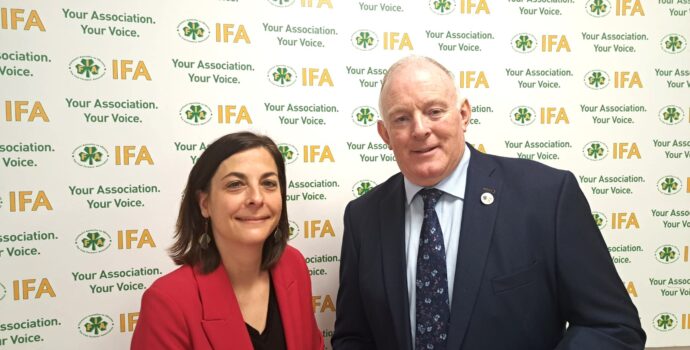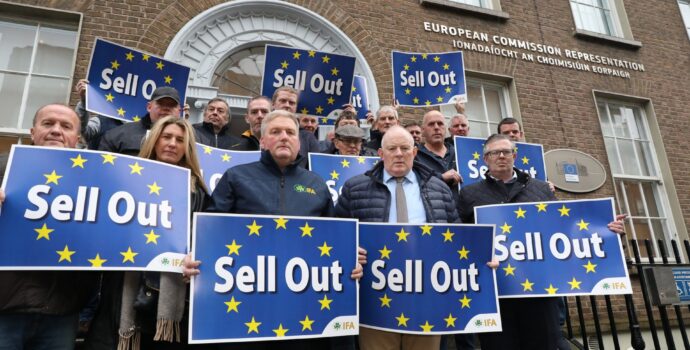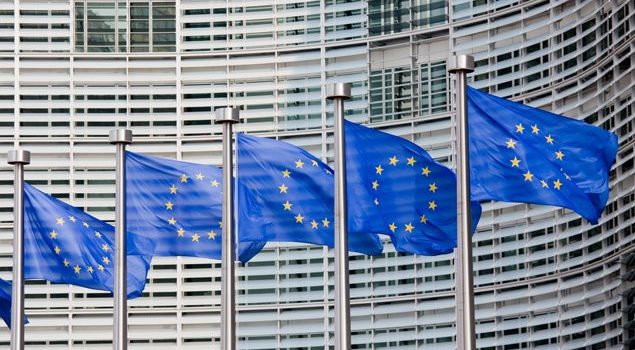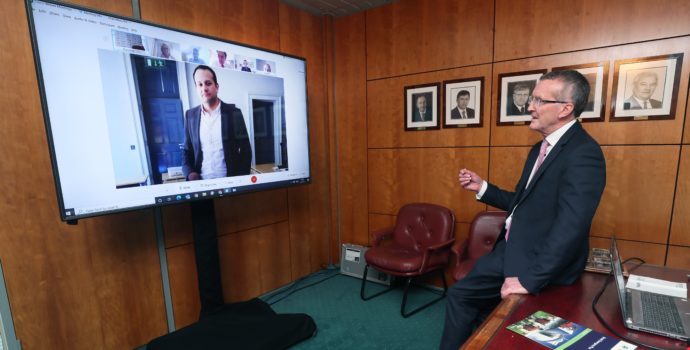IFA Bring Opposition to Mercosur Deal to EU Commission Offices
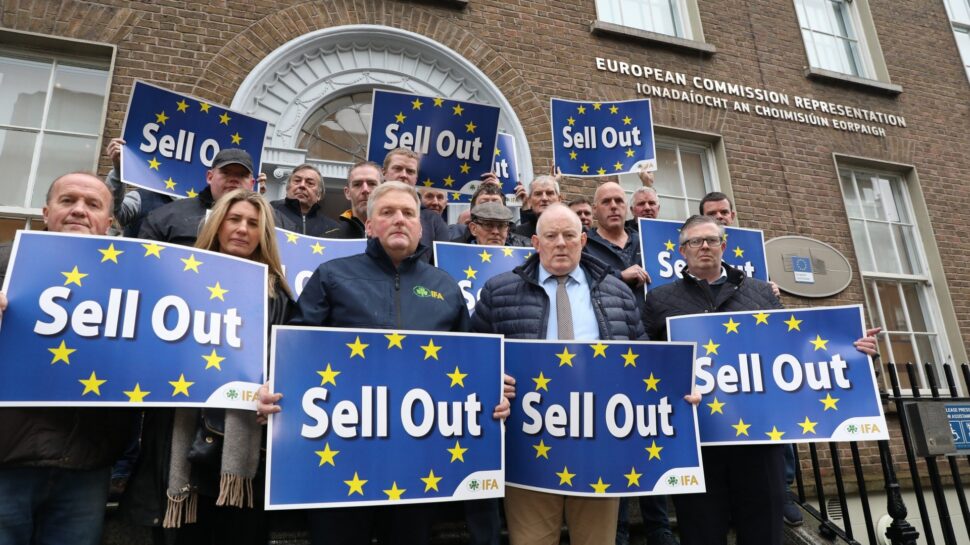
IFA President Francie Gorman led the IFA Livestock chair Declan Hanrahan, members of the IFA National Livestock Committee and IFA National Treasurer Patrick McCormick, representing poultry producers, to the EU Commission office in Dublin today to hand in a letter of protest about the ongoing Mercosur trade negotiations.
“Negotiations have ramped up this week despite significant opposition from some Member States. The Commission is trying to take advantage of political uncertainty in France to drive the deal through this week,” he said.
The IFA President, who is also the Vice-President of COPA, the European farmer representative body, said that COPA were asking all member farm organisations to drive home their opposition to the deal in each member state over the next few days.
“This deal is the height of hypocrisy. There will be no level playing field for EU farmers. Our markets will be undermined by cheap imports produced to lower standards. If this deal is concluded by the Commission, it will need to be approved by the EU Council of member states where there is still significant opposition to any deal being concluded,” he said.
Francie Gorman said other Member States have voiced their opposition to the deal and the post-election talks here should not distract the Irish Government from this very important issue.
“Both the Taoiseach and the Tánaiste told the IFA National Council during the General Election campaign that they were opposed to the Mercosur deal. They must carry this commitment forward and relay it at the highest level in Brussels,” he said.
The IFA President said this deal has the potential to decimate the Irish and European beef and poultry sectors. Despite this, the European Commission continues to press for a conclusion and ignoring the concerns of farmers. The Commission seems intent on sacrificing European farmers in order to get this deeply flawed trade deal over the line.
Our farmers have remained consistent in complete opposition to the proposed deal. The core reasons for this are as follows:
1. Irish and EU beef and poultry sectors will be decimated as a result of increased imports of tariff free beef and poultry from countries which have a competitive advantage due to the lower production regulations and standards.
2. The proposed addendum reflecting measures for implementation of environmental law does not provide sufficiently robust safeguards for European producers.
3. There is a clear absence of a robust tracing system for suppliers of beef cattle from Brazil to the EU market. Cattle are not foreseen to be fully traceable there until 2032. The EU cannot conclude a trade deal with such divergence of standards. Commission Audits of Brazilian Beef and Poultry as recent as April 2024 clearly demonstrate this gap in standards.
4. There is a lack of transparency surrounding cattle transfer permits in Brazil. This month the Brazilian environment protection agency IBAMA imposed fines of R$365m (€59m) on farms and meat packers for raising or buying cattle on illegally deforested land in the Amazon. The potential economic impact of this deal on Irish farming is frightening.
A tariff free quota of 99,000 tonnes of beef equates to 4m head of cattle (325kg carcase weight) equating to 18% of current EU beef production. Furthermore, any Brazilian imports are likely to be in the form of high value cuts such as steaks, further deepening the impact.
The current agreement includes a tariff-free quota of 180,000 tonnes of poultry meat, primarily chicken breast, equivalent to 1.2bn fillets. The EU already imports over 400,000 tonnes of poultry meat from Mercosur annually. If this additional volume enters the EU market, it would intensify pressure on Irish producers and EU farmers, as the significant price disparity would make competition even more challenging. Brazilian poultry costs less than half the price of its EU equivalent.
We want the EU Commission to address our concerns in the manner set out in the recent EU Strategic Dialogue document which clearly states (p.47) that: “Impact assessments must include concrete and scientific comparison and mapping of production methods and standards as well as conclusions on their impact for agricultural producers, the environment, health, labour, animal welfare, the supply chain business and consumers in both EU and partner countries.”
IFA is also in complete opposition to any splitting of the trade and political aspects of a potential Mercosur deal. The role of national Parliaments in relation to trade deal ratification must be respected and honoured by the EU Commission.

